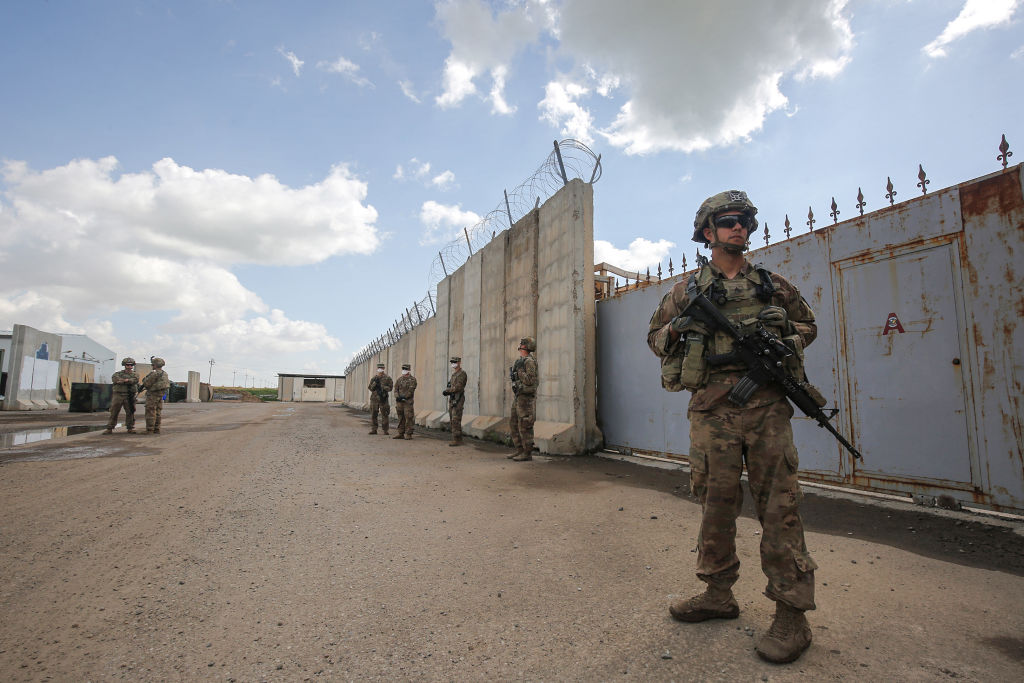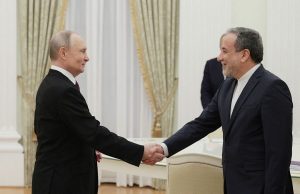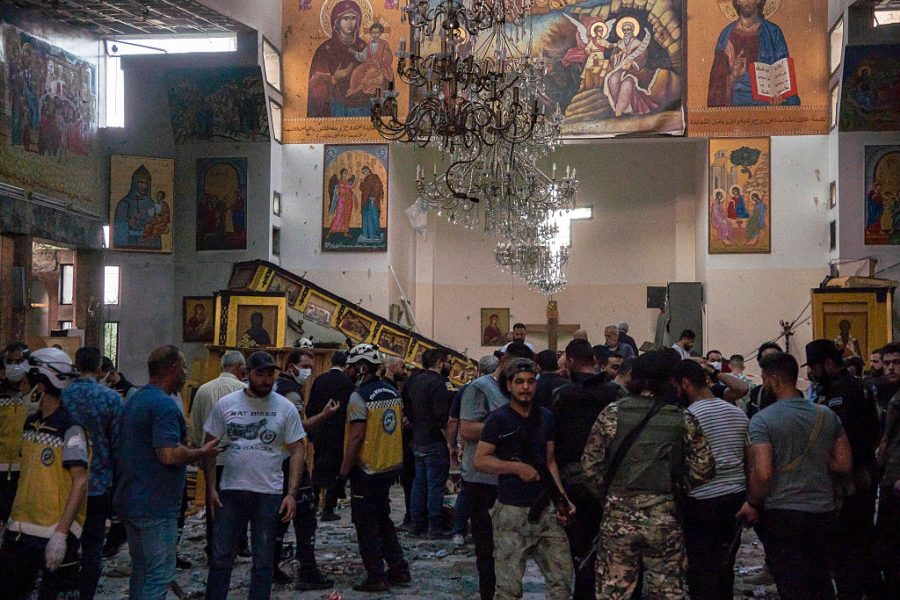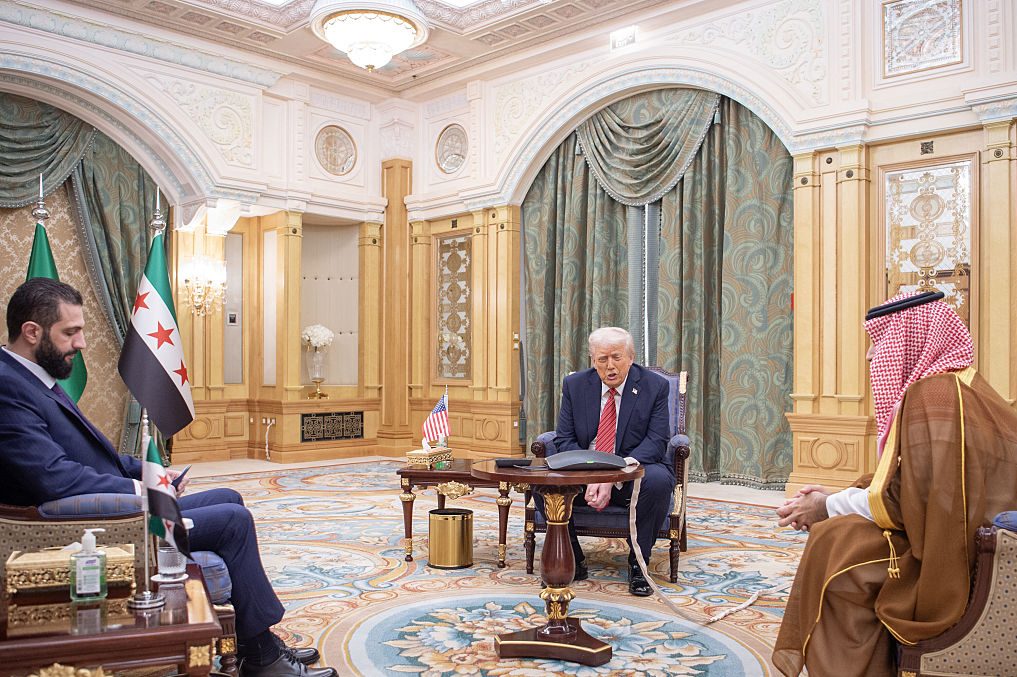The Iraqi people have been through plenty over the last twenty years: a regime change operation against Saddam Hussein; a jihadist insurgency against American occupation forces; a sectarian civil war between Shia and Sunni armed groups; Iranian political interference; an Islamic State rampage; a US-organized counter-ISIS coalition that destroyed the terrorist group’s territorial caliphate. According to Brown University’s Cost of War Project, at least 275,000 Iraqi civilians died in war-related violence between 2003 and 2019.
On March 19, the US will mark the twenty-year anniversary of Operation Shock and Awe, the massive air campaign against Saddam’s Iraqi army that paved the way for the ensuing armored drive to Baghdad. Saddam’s dictatorship was gone in a matter of weeks, but the story didn’t end there. The dissolution of the Saddam regime, which had held Iraq together for a quarter-century through extraordinary violence, repression and bribery, was to have dramatic consequences.
Looting began within days, even hours, after the United States captured the Iraqi capital. US troops were ill-served by Washington, which spent the months leading up to the war declaring that millions of Iraqis would greet the American liberators like the French did after the Nazis were kicked out of Paris in 1944. Instead, US soldiers were forced to police a population on edge. Hundreds of thousands of men were stripped from their government positions. Iraq would spend the next several years as a de facto US protectorate in which Americans in their early twenties had to execute orders from distant suits who didn’t have a clue what they were doing.
Fast-forward to today, and roughly 2,500 US troops remain stationed in Iraq, training and advising the Iraqi security forces and assisting Baghdad with intelligence, surveillance, and reconnaissance in the course of counter-ISIS operations. Defense Secretary Lloyd Austin, who commanded all US forces in Iraq when the Obama administration was implementing its troop withdrawal in 2011, made an unannounced trip to Baghdad this week to meet Iraqi Prime Minister Mohammed Shia al-Sudani. Austin came away from his trip cautiously optimistic, reminding everyone within earshot that the US was in Iraq “at the invitation of the government in Iraq.”
The US is no longer nation-building in Iraq like it was during the George W. Bush presidency. Yet Washington still hasn’t learned one of the major lessons of the era: keep expectations reasonable and objectives attainable.
There was a time, between 2014 and 2017, when American officials did have a set of clear, achievable goals. During this brief period, the Obama and Trump administrations knew what they wanted: shatter the Islamic State’s control of territory. Washington thus utilized air power, special forces, and ground forces to hammer at ISIS’s positions, expelling them from Iraqi cities like Mosul, Fallujah and Ramadi as well swaths of the Iraqi countryside. It took years for this loose anti-ISIS coalition, characterized in part by brutal house-to-house fighting in high-density urban terrain, to liberate Iraq.
As vicious as the combat was, the US and its partners were able to accomplish the objective. In December 2017, the Iraqi government announced that the last slim piece of ISIS-administered territory near the Iraq-Syria border had been retaken. Abu Bakr al-Baghdadi’s so-called territorial caliphate was swept into the pages of history — and Baghdadi himself would be dead two years later after US operators descended upon his compound in northwestern Syria.
Why, then, is the US defense secretary still making secret trips to Iraq? Why are US troops even on Iraqi soil?
The reason is that two successive administrations (first Trump and then Biden) chose to change the objectives in Iraq rather than acknowledge success. As Pentagon officials tell it, the US is in Iraq to turn the Iraqi army into an independent, professional force, prevent the return of the ISIS caliphate, and defeat ISIS as a whole. Sure, ISIS’s capabilities may now be “significantly degraded,” as the Pentagon’s special inspector general reported last month. But the group’s ideology remains prevalent throughout Iraq, requiring an indefinite US military presence (why officials believe ideology can be solved through force of arms is always conveniently left out of the discussion).
“Territorially, ISIS is defeated and incapable of holding large swaths of land,” General Michael “Erik” Kurilla, the top US commander in the Middle East, said in a recent press release. “However, ISIS remains a threat and its vile ideology remains uncontained and unconstrained.”
Read between the lines and it’s easy to discern what the message is: thousands of American troops will stay in Iraq until ISIS ceases to exist and the vile, nihilistic ideology it represents is wiped out. Translation: thousands of American troops will stay in Iraq until a president comes along with a better grasp of reality.
One of the golden rules of US policymaking is to make sure you aren’t setting yourself up for failure. A big part of this is understanding when the end state you wish to see is too ambitious — and if it’s not, whether the costs of reaching it are worth the benefits. This isn’t happening in Iraq. The sages who run our foreign policy are either delusional about American power or grossly ignorant about their job descriptions. Neither one is encouraging.

























